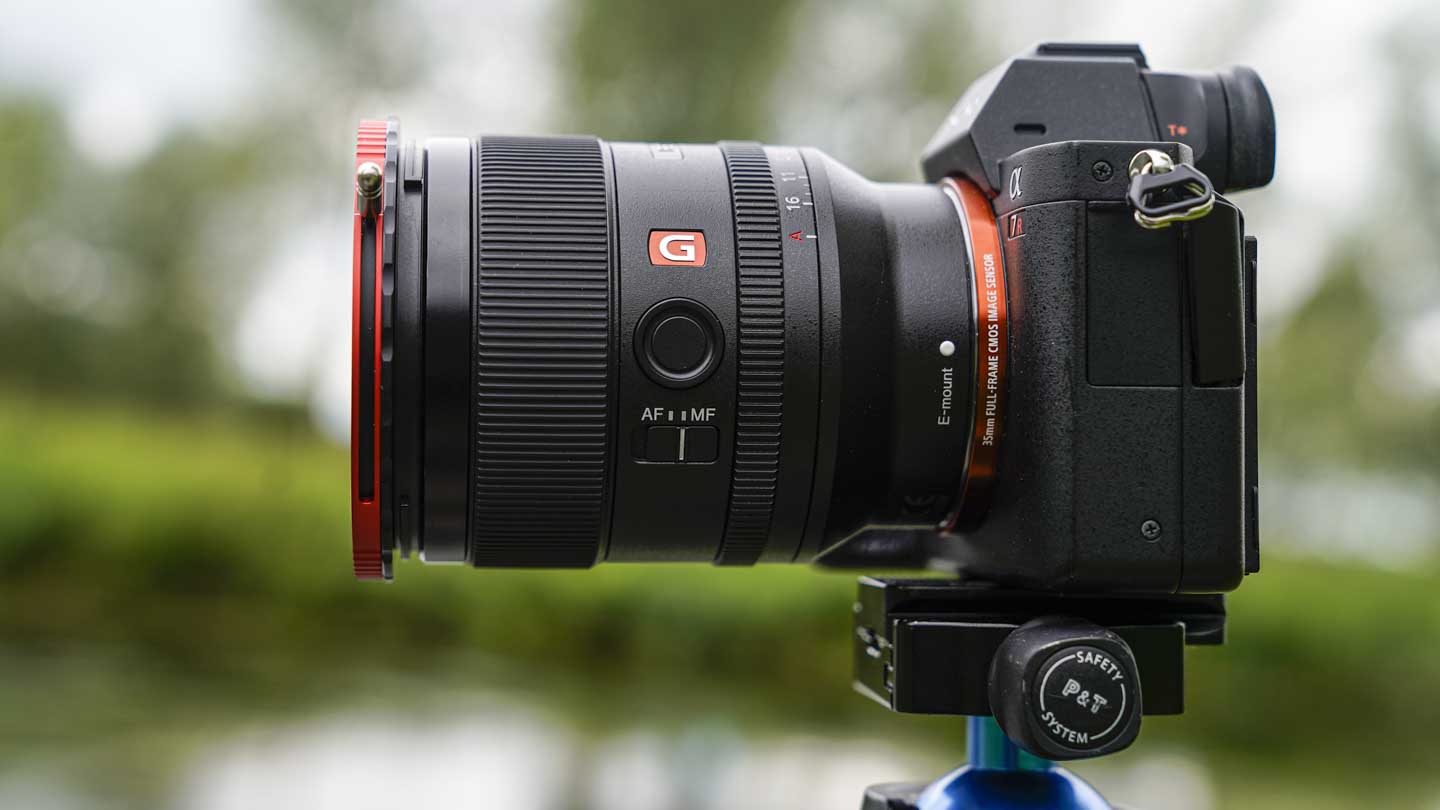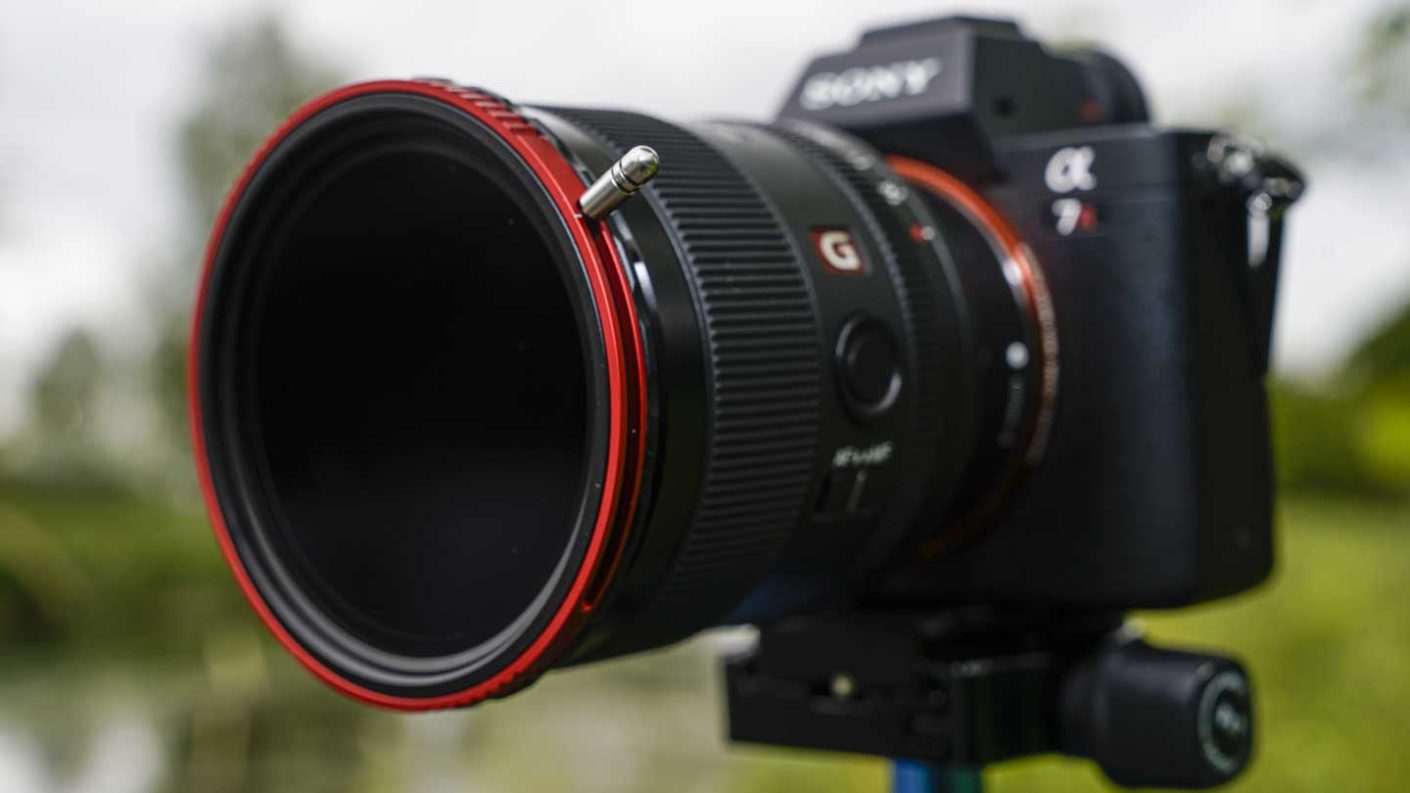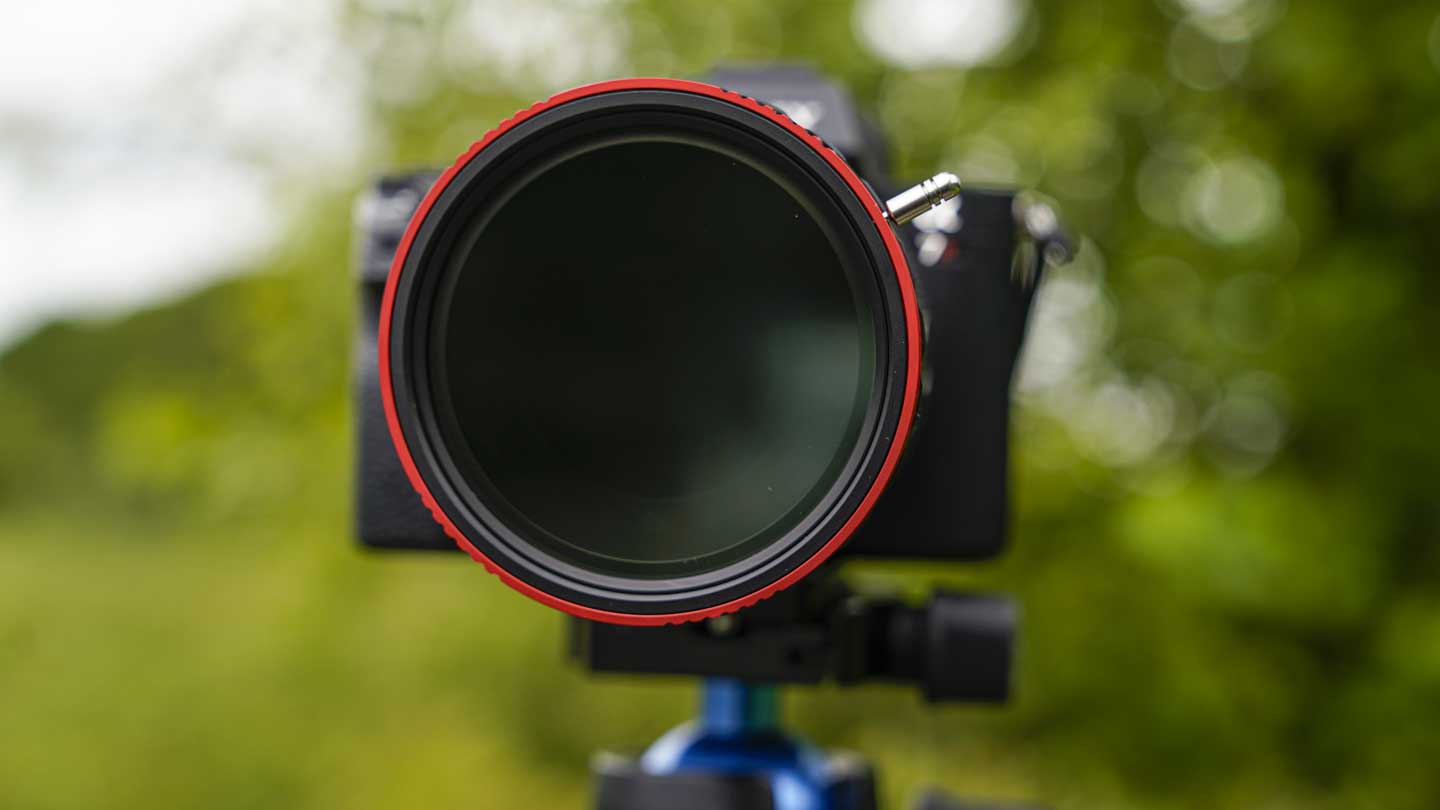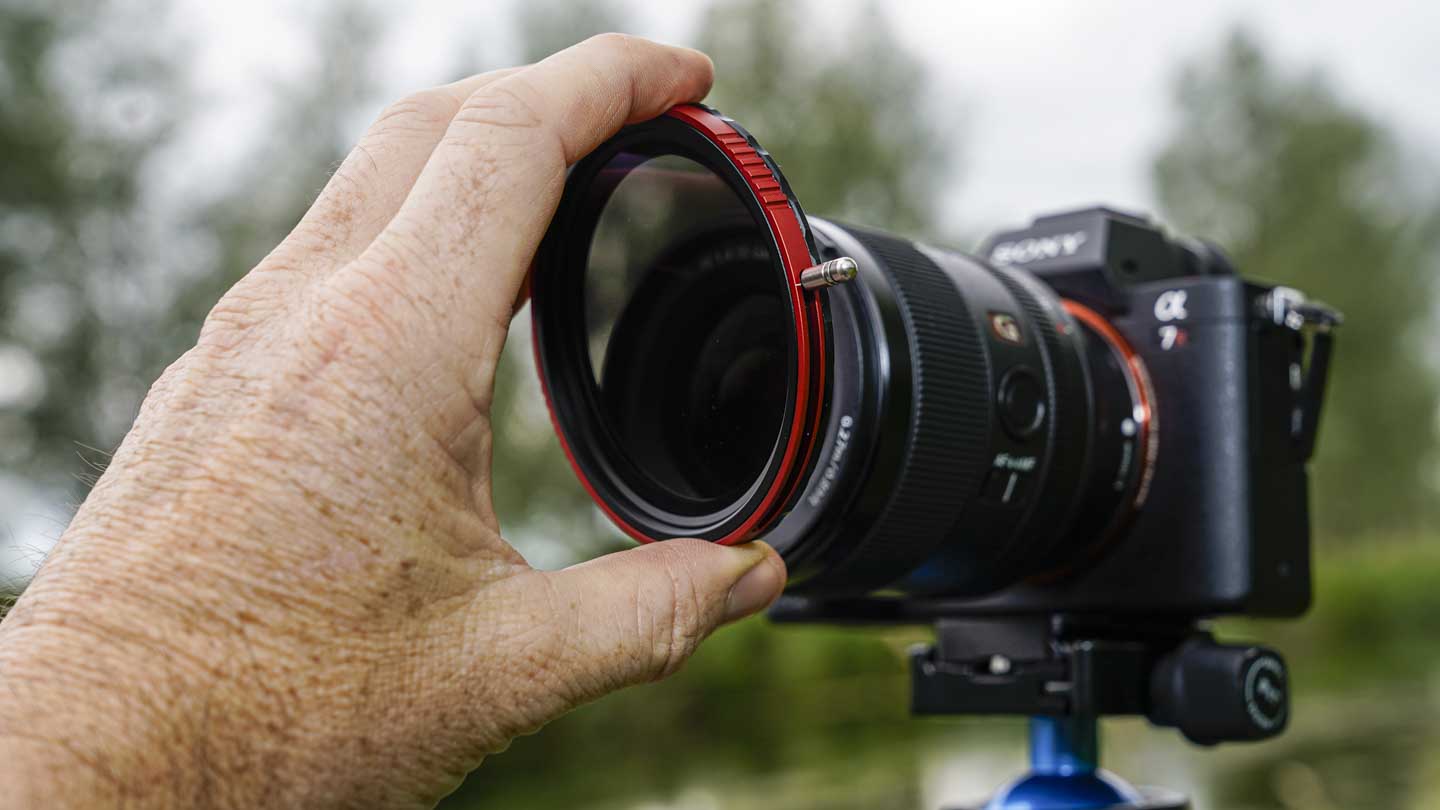The Haida PROII CPL-VND 3-7 Stops is a variable ND and Circular polariser in one. That’s no mean feat, as most VNDs are two polarisers that rotate together to create the stop-down effect.
Here, however, the Haida PROII CPL-VND 3-7 Stops not only utilizes the two polarisers in the usual fashion, rotate, to adjust the amount of light able to pass through the filter but when you rotate the entire filter you get a standard polarising effect.
.As with any good VND, there are end stops on that rotation, this just helps avoid pushing the effect too far and causing cross polarisation. While most VNDs enable you to rotate the front element, the Haida PROII CPL-VND 3-7 Stops works slightly differently.

When it comes to the adjustment of the VND, you’ll see that there’s a pin that sticks out through a slit in the red outer ring; this pin is rotated to adjust the effect of the VND rather than rotating the entire element, as that adjust the polariser.
This action of rotation is relatively smooth, and a nice feature here is that the Exposure STOP numbers can be seen as you look through the slit. This graphical depiction of exposure reduction is handy if you need to work out exposure times manually. When it comes to the polarising effect this is adjusted by rotating the front red ring, and works the same way as other CPLs.






